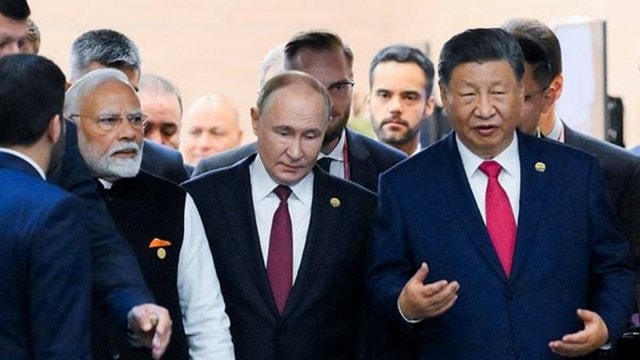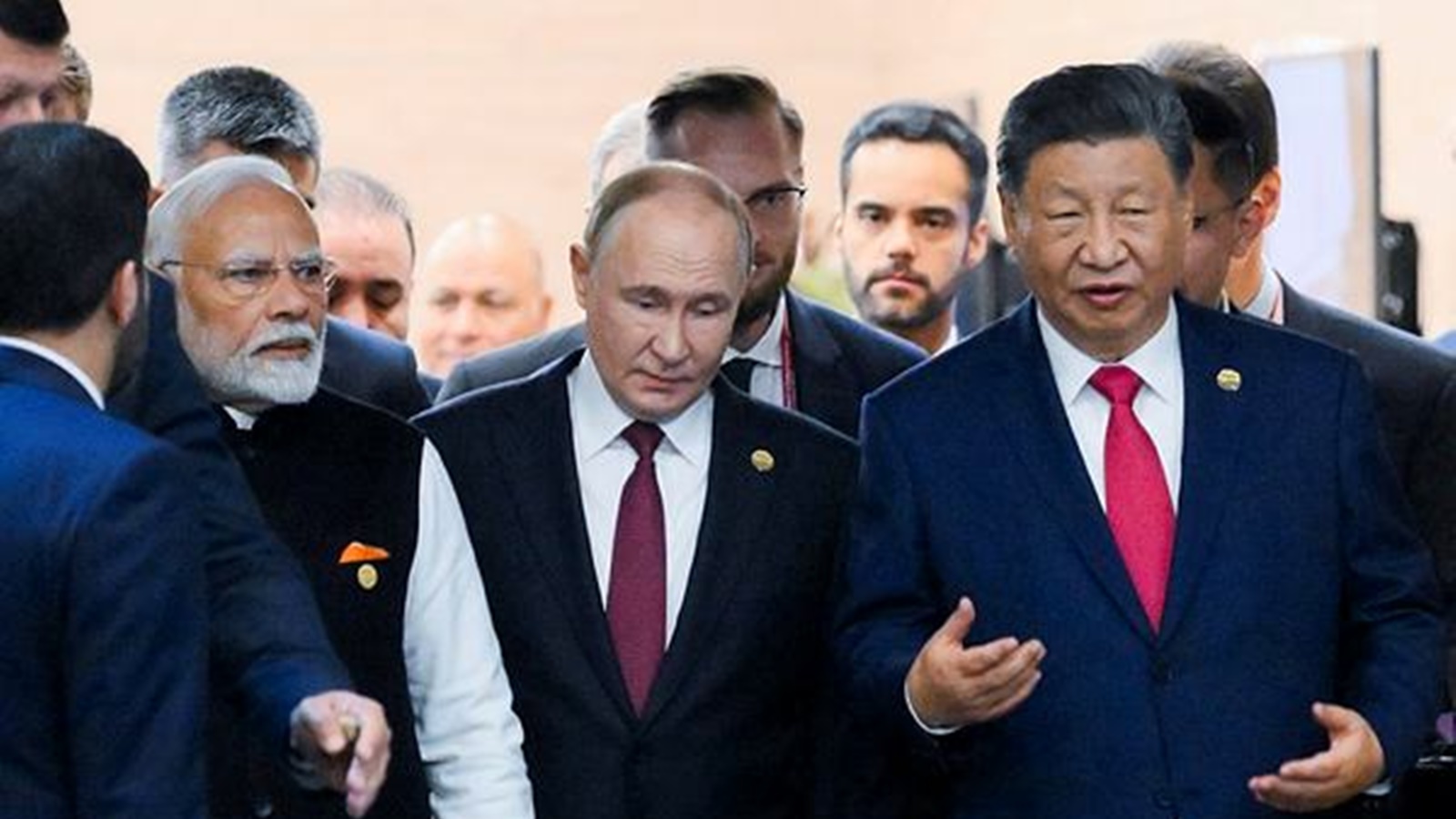
A week before the BRICS Summit at Kazan in Russia this week, the Ministry of Finance of the Russian Federation released a document titled ‘Improvement of The International Monetary System’. It was prepared for discussion at the summit where heads of five original member countries, Brazil, Russia, India, China and South Africa, were joined by leaders of more than 20 other countries.
The document began with the claim that the “current IMFS (International Monetary and Financial System) has reached its peak and needs improvements to better serve the evolving global economy”. Alluding to Russia’s own travails in the face of stiff sanctions by the US and other Western powers, it alleged that the present system has “destabilising potential that stems from excessive reliance on a single currency and centralised financial infrastructure”. Emphasising that the future model of IMFS should be based on four core principles — security, independence, inclusion, and sustainability — the document proposed to the BRICS countries to explore the “establishment of a common multilateral settlement platform based on modern technologies”.
President Putin himself talked about it a couple of days before the summit at the BRICS Business Forum in Moscow. Describing BRICS as essentially the drivers of global economic growth, he said that the group would generate the main increase in global GDP in the “predictable future”. He cited his country’s initiatives like a joint cross-border payments system and a SWIFT-like financial messaging system, that are “immune to Western sanctions”, to suggest to his BRICS colleagues that they should “reassess” keeping sovereign reserves in US dollars. All this was part of Putin’s agenda to challenge the dollar’s dominance.
At the summit at Johannesburg last year, BRICS leadership gave the impression that they would be seriously challenging dollar dominance at the Kazan summit. Luiz Inacio Lula da Silva, the Brazilian president, who will be hosting the BRICS summit next year, became the first senior leader to talk about it. “Why can’t we do trade based on our own currencies? Who was it that decided that the dollar was the currency after the disappearance of the gold standard?” he asked
This, together with the occasional statements by the Russian leadership in the run-up to the summit, left the world with the feeling that BRICS would become the latest challenger to the dollar dominance in this century. It was widely believed that “de-dollarisation” — the process of reducing the dollar’s influence in international monetary exchanges — would gain momentum after Kazan.
In all fairness, the BRICS countries are not the first to oppose “dollar dominance”. The history of currency politics goes back to the 1950s and 60s. The French leadership was the first to challenge the dollar and insisted on having the gold standard as the medium for international monetary transactions. The agreement that led to the formation of the Bretton Woods institutions in 1944-45 also made gold and dollar the dual standard. But the dollar slowly took over as the sole medium to the chagrin of the French leadership, which, at one point in the 1960s, gave a call for “Banaliser le Dollar” (dethrone the dollar). Charles de Gaulle, French President and a lifelong critic of dollar dominance, bitterly commented in his memoir that “the monumentally overprivileged position that the world has conceded to the American currency since the two World Wars left America standing alone amid the ruins of others”. The French took the lead in creating the European Economic Union in 1957, and the Euro as the common currency in 1999. Euro succeeded in taking a 21 per cent share in global forex reserves in the last two decades.
However, US President Richard Nixon went ahead and announced the “new economic policy” on August 15, 1971, in which he decided to end the dollar-gold dual system and pronounced the dollar as the sole currency standard for international transactions. But all that was the story of the last century. Today’s realities are different. The dollar is no longer just the US currency. The greenback has come a long way to become the mainstream currency for the global monetary regime. There are genuine concerns about the way governments in the US sought to“weaponise” the dollar by indiscriminate and unilateral sanctions and freezing of dollar assets of governments, including Russia, and numerous individuals. That led to the return of the de-dollarisation rhetoric.
However, the Kazan Declaration was largely silent on the issue. It did express “deep concern” about the “unlawful coercive measures, including illegal sanctions”, but did not go beyond calling for the “reform of the Bretton Woods institutions”. Although it talked about “encouraging” settlements in local currencies using BRICS Cross-Border Payments Initiatives (BCBPI), it hastened to add that the yet-to-be-created system, supposed to bypass the SWIFT mechanism, would be “voluntary and non-binding”. The declaration only said that they would “discuss and study” the feasibility of such an arrangement.
This climbdown appears to have been necessitated by the stern opposition from India to any overt move to target the dollar. At a think tank event in Washington DC last month, External Affairs Minister S Jaishankar had categorically stated that India never “actively targeted” the US dollar. While some BRICS members may have supported de-dollarisation, India has “no malicious intent” towards the dollar, he clarified. Keeping global economic stability and health in mind, India discouraged the reckless de-dollarisation rhetoric. India’s success, between Johannesburg and Kazan, lay in convincing BRICS countries that the reform of the international monetary system that allows for the rise of currencies of the new economies in an organic way should be the preferred way rather than some drastic action to cater to the geopolitical objectives of a few countries.
The writer, president, India Foundation, is with the BJP. Views are personal
© The Indian Express Pvt Ltd
First uploaded on: 26-10-2024 at 03:21 IST



